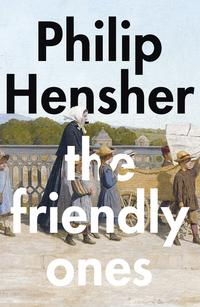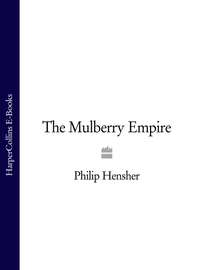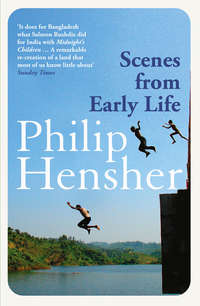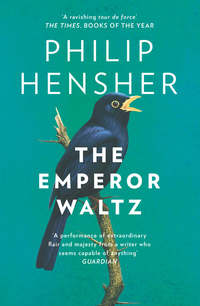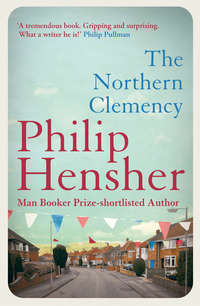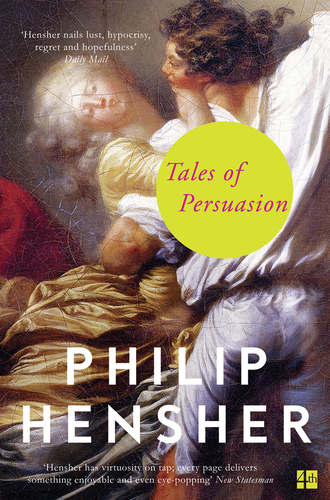
Полная версия
Tales of Persuasion
They had been there for a while, in fact. They were a herd of does and month-old fawns; a great buck or two could be seen, much further off. The mothers were performing a small ballet of rush and delay: of eating, of raising their heads, then making a short communal run before stopping again. The spontaneous and sudden movements separated by pauses of still and quiet had something moving about it to Fitzgerald. He wondered whether Stubbs had ever painted does with their fawns.
Eduardo propped himself up on his elbows, inspecting the herd. ‘They are big animals,’ he said. ‘You don’t know deer, they are such big animals. I thought they were the same size as, I don’t know, as a goose, but they are big.’
‘Yes, they are big,’ Fitzgerald said. ‘The males are bigger.’
Eduardo took this without comment. ‘You know, it’s strange that nobody ever eats deer,’ he said. ‘Every other animal, they eat them. Sheep, they eat them. Beef, they eat them. Pig, they eat them. Veal, they eat them. Fish, they eat them. I never heard of anybody eating deer.’
‘People eat deer,’ Fitzgerald said. ‘It’s called venison. It’s good. I don’t know whether people eat the deer in Richmond Park, though.’
‘I never heard of that,’ Eduardo said. ‘I don’t think that’s right. I never heard of anyone eating deer, or what did you say?’
‘Venison,’ Fitzgerald said. Presently, Eduardo lowered himself back onto his pillow, and behind his mirrored Aviator sunglasses, his eyes closed; in a few moments, his hands folded on his chest, his slightly open mouth began to emit faint whiffles. And Fitzgerald admired the view.
Fitzgerald went round to Bradbury’s flat the following day at ten thirty in the morning – he didn’t want to make a habit of waking Eduardo up, if he was not a morning sort of person. He went to his usual café first, and picked up two croissants and two cups of some take-out coffee – a cappuccino with skimmed milk and without chocolate on top for him, a double espresso, which was what he believed South Americans drank for breakfast, for Eduardo. A different voice answered the intercom – not Eduardo’s, but not Bradbury’s either. A small Vietnamese woman opened the door to him, dressed in a plastic coverall. She explained that Mr Bradbury was not at home, and that his friend who was staying had gone out. She looked at Fitzgerald, wearing a pair of white jeans, sandals on his hairy white Irish feet and a washed-out black T-shirt, carrying two paper cups of coffee, one in each hand, and the neck of a paper bag awkwardly between the fourth and fifth fingers. ‘If you like, you can give me his breakfast,’ she said. ‘I think he’s Mr Bradbury’s boyfriend, the one who stays here,’ and she made a small, amused expression on her small, experienced face.
Timothy Storey was lying on the sofa when he returned, some time after eleven. ‘Was it with that handsome fella you went to Richmond Park?’ she asked.
‘Eduardo, yes.’
‘Is he a half-caste?’ Timothy Storey said.
‘No,’ Fitzgerald said, with distaste. ‘He’s Argentinian.’
‘You know how you tell a half-caste – because some of them, they look really as if they could be white? You take a look at their gums, and they’re sort of bluish. It’s hard to describe, but they never lose that.’
‘I see,’ Fitzgerald said. ‘I must keep it in mind.’
On the television, a boy like a rat was assuring a girl very much like Timothy Storey that he had not slept with her mother; the girl was assuring the boy in return that the baby she had just given birth to was his. ‘Do you ever watch this?’ Timothy Storey said. ‘We don’t have programmes like this in Africa. This is great.’
‘Normally, I have too much work to do in the mornings to watch television,’ Fitzgerald said. ‘When does your course start, Timothy? Shouldn’t you be in college or something?’
‘They’re going to make them take a lie-detector test,’ Timothy Storey said. ‘I love it when they do that.’
‘Where is your college, anyway?’
‘I think it’s in Canning Town,’ Timothy Storey said. ‘Is that close to here?’
‘Not very,’ Fitzgerald said. ‘You’ll need to be out early in the morning to get to classes on time.’
‘Oh, I don’t think it’s really that sort of college,’ Timothy Storey said. ‘You pay them a fee and they get you a student visa, but I don’t think they expect to see you at classes or anything. It’s just to get you into the country, and then you see how long you can stay before they catch up with you. The visa don’t know your address, though. I would reckon I’m pretty safe for a few months holing up here. Is that a coffee going spare?’
Bradbury came back from Paris the next day, and though of course he worked during the day, there would be more of a sneaking-around aspect to calling on Eduardo. The combination of Bradbury being away and Fitzgerald knowing that Bradbury was away would not necessarily coincide soon. But before Fitzgerald could wonder how he was going to see Eduardo again, Bradbury’s Saab was drawing up by the bus-stop where Fitzgerald was waiting for a bus. Fitzgerald involuntarily looked beyond Bradbury, but the passenger seat was empty.
‘I heard you kept poor old Eduardo entertained while I was away,’ Bradbury said. ‘Good for you.’
‘Yes, we had a nice day out,’ Fitzgerald said.
‘He’s not got a lot of get-up-and-go,’ Bradbury said. ‘I think he’d stay in the house all day if it were left up to him. Poor soul. Listen, we’re having some people round for a drink on Saturday night – do drop in.’
There was something insulting about Bradbury’s total lack of curiosity about the day in Richmond Park; it was evidently, from Eduardo’s account, not something to awaken anything like jealousy. Fitzgerald wondered what he had said. But all the same, he said, ‘I’d love to,’ rather fervently, and Bradbury drove off, not offering Fitzgerald a lift, wherever he was going to.
‘Come in! Come in!’ Bradbury called wildly, from his door, to Fitzgerald at the bottom of the stairs. An old Perez Prado track was playing deafeningly from the flat; a fashionable choice that year, but a mistake, Fitzgerald believed, since once you had got past the Dolce Vita one, the Bob the Builder one and the one from the Guinness advert, they were difficult to tell apart. ‘Come in!’ Bradbury said excitedly. ‘It’s all good!’ With an immediate glance, Fitzgerald saw the array of champagne bottles on the glass console table by a vase of white lilies, and bent to deposit his bottle of Jacob’s Creek behind the door. He was an old hand at that sort of thing: if you handed your inferior bottle over to the host, it would disappear and you would get sneered at.
The party was in its early-full stage; a couple were attempting to dance and falling over cushions; the food on the table was untouched, but not yet covered with stubbed-out cigarettes. Bradbury introduced Fitzgerald to a man; a decent-looking but bewildered man called Stephen, in a white jacket, who turned out to be a friend of Bradbury’s youth in Northern Ireland, in London for the first time, he said, in five years. No, he was staying in a bed-and-breakfast in Clapham Old Town; he’d found it on the internet. Wasn’t the internet a marvellous thing, for finding hotels and that? Fitzgerald agreed. ‘Do you think these lads here’d be up for a suck and a bunk-up later in the evening?’ Stephen asked, indicating three bulky men in vests, romping on the carpet. ‘I heard they had some of that cocaine with them, I’d like to have a go on that.’
Fitzgerald excused himself, and made his way over to Eduardo, who was sitting without drink or company in the far corner of one of Bradbury’s enormous sofas. ‘Oh, it’s you,’ Eduardo said. He was in a white shirt, unbuttoned to below his nipples, and quite an ordinary pair of jeans from which the labelled waistband of a pair of white pants emerged, whether by design or chance; he wore no shoes, and once more Fitzgerald allowed himself to be dazzled by the broad dark feet, the dazzling emergence of the dark breast from the flutters of a new white shirt. It was too much.
‘Is anyone getting you a drink?’ Fitzgerald said.
‘I’m fine, I don’t want one,’ Eduardo said. ‘I don’t know why Daniel’s having this party. They all come and say hello, then they leave me, they go off into their bathroom and they have a line. I don’t like to drink, I don’t like to do line. It makes you fat.’
‘Don’t you like a party?’
‘Oh, sure, but I like to dance, and no one’s dancing here. That’s not dancing,’ indicating the wobbling pair, whose attempts to mambo to Perez Prado had turned into a more or less successful attempt to hold each other up. ‘No one wants to dance, or talk, or anything but get drunk and high and then go to a club, maybe. And they all sleep with someone who isn’t their boyfriend. I never do that. I think if a man’s your boyfriend, you keep yourself for him and he keeps himself for you. That’s what I think. Daniel thinks I’m crazy but I know he’s happy I’m a good boy like that.’
‘Well, Eduardo,’ Fitzgerald said. He was so much more beautiful than anyone else there, so much more. ‘One day soon I’ll have a party for you, and people will dance and talk, and not sleep with anyone who isn’t their boyfriend afterwards.’
‘Thank you, you’re sweet,’ Eduardo rattled off, scowling at the room.
‘I don’t think anyone here understands you,’ Fitzgerald said.
Eduardo seemed to ignore this, but something in his demeanour, like a dog pricking up its ears at the faint noise or sniff of prey two hundred yards off, encouraged Fitzgerald.
‘I don’t think you show people what you’re really like,’ Fitzgerald said. ‘I think I know what the real you is like.’
‘I don’t think you do,’ Eduardo said. ‘I don’t think anyone does. Sometimes I don’t think I do, even.’
‘Well, I think I have some idea,’ Fitzgerald said. ‘You’re really beautiful, do you know that?’
‘Oh, everyone says that,’ Eduardo said, the air of the attentive dog suddenly switching off. ‘It’s so boring, people saying that, it means nothing. I’m going to dance.’
‘Let’s dance,’ Fitzgerald said desperately, and leant forward; he meant to take Eduardo’s arm as a dancing partner might, but some movement of Eduardo’s, some inability of Fitzgerald’s to execute a suave gesture, meant that first his right hand, then the other, landed on Eduardo’s upper thigh.
Eduardo pushed him off angrily. ‘Leave me alone,’ he said, getting up. ‘Daniel was right about you. You’re just the same as everyone else.’
‘Yes, he does that to people,’ Bradbury said to Fitzgerald, gliding past. Humiliatingly, the episode had amused the whole party, including even the terrible Irishman, who was tittering behind his hands. ‘Don’t worry, Graham. It’s happened before and it’ll happen again. I’m going to Munich for four days next week. Take him to the zoo this time. He’d like that, I expect.’
Fitzgerald punished himself; he only had himself to blame. A little more leisurely, a few more compliments about his beauty, and Eduardo would be eased into his bed. That was how it was done, wasn’t it? Involuntarily, he thought about his greyish crumpled sheets, the pillows and the holed duvet scattered about his fetid retreat, and revised the picture: seducing Eduardo onto the no-doubt immaculate and crisp sheets of Bradbury’s vast and snowy bed. All the next day, he lay on the sofa, groaning when he thought of what he had said and done, in front of an audience who despised him anyway. Timothy Storey was out for the day, God knew where; he settled into the depression in the sofa, the buffalo wallow she had made in the previous weeks of lying down. He did not have the excuse, for last night’s behaviour, of drunkenness, either; he hoped Eduardo might assume, as they did, that Londoners were drunk most of the time.
Around three o’clock on Tuesday afternoon, the telephone rang, and he leapt for it. He was conscious that Bradbury’s ‘four days’ meant that he might have gone on Monday, but had definitely gone on Tuesday. He set about immediately constructing a scene in which Eduardo was offering him the opportunity to apologize, in which Eduardo was apologizing, in which Eduardo had considered his offer and, now that Bradbury had gone to Munich and Eduardo was alone in the house—
It was a woman’s voice. ‘Is Timothy Storey there?’
‘No,’ Fitzgerald said. ‘She’s out.’
‘Well, could you pass on a message? Tell her that Mrs Baxter from Ealing called, and she’d very much like to know where her aubergine bath sheet and matching hand towels are. It’s not a joke. Those were expensive towels she’s waltzed off with.’
Fitzgerald knew those purple towels: he kicked them out of his way on the bathroom floor most mornings, wondering who on earth bought purple towels. ‘I’ll tell her,’ he said equably.
‘It’s really too bad,’ Mrs Baxter said, relenting as she talked. ‘Have you let her a room? I’d just like to give you some advice. Count your towels before she leaves.’
‘I’m puzzled,’ Fitzgerald said. ‘This is Ealing in London you’re calling from, right? When was she living with you?’
‘Till two weeks ago,’ Mrs Baxter said. ‘It’s taken me that long to get this number out of her people in Kenya. She was with me for six months. I had to pretend to her family that I’d bought her a gold necklace and I wanted it to be a surprise for her. Otherwise they wouldn’t give me her new number – they’re no fools. She told me she was going back to Africa, but of course I didn’t believe that. She came to me from a friend of a friend in Acton, and I’ve just heard she had concerns about some missing knives. Sounds like she’s preparing to furnish a flat. At our expense, if you don’t mind me giving you some advice.’
‘I’ll let her know,’ Fitzgerald said, and put the phone down. Rage filled his soul.
‘I said that,’ Timothy Storey said, when she returned and Fitzgerald asked her for some more details. ‘I do come from Kenya. Mrs Baxter didn’t tell you that I didn’t come from Africa, did she?’
‘But you asked me to meet you at Paddington,’ Fitzgerald said. ‘I thought you’d come from Kenya just that moment. I thought you were coming on the Heathrow Express.’
‘Oh, no,’ Timothy Storey said. ‘I was coming from Southall on the train. It’s only fourteen minutes, it’s quite convenient. Mrs Baxter says she lives in Ealing, but it’s really Southall, she thinks it sounds smarter. It was nice of you to meet me at Paddington. I could have made my own way here, but I thought it would be good if we met somewhere neutral before you took me home – you hear such awful stories. Mrs Baxter, she was a bitch from Hell, I’ll tell you. She was always complaining about me watching TV when she wanted to watch something, and telling me I shouldn’t be lying on the couch eating snacks, and there was something on the other side she wanted to watch, like she owned the TV or something.’
‘But she did own the TV,’ Fitzgerald said, almost incapable of speech. ‘Didn’t she?’
‘No, I mean the TV channels, like she owned the TV channels. She always had her own thing she wanted to watch. She was a prize bitch. I’m glad to be out of there.’
‘You know,’ Fitzgerald said, ‘I think I’m going to have to ask you to move out. I don’t think you’ve been truthful with me at all.’
‘Oh, I wouldn’t do that,’ Timothy Storey said. ‘I like it here. It’s been nice of you to let me have the room for nothing, but some people might wonder why a single man wanted to have a girl to stay in his house and gave her a room for nothing. It looks a little bit fishy, don’t you think? I would only have to say to someone that you’ve been touching me—’
‘I’m gay, you know. Everyone knows that.’
‘Yes, indeed, what people in my country and some people in this one, too, like to call a sexual pervert. And then I might have to show them the hole that you drilled in the wall to watch me getting undressed at night. It’s there, that hole.’
‘There’s no hole in the wall.’
‘Take a look. I think you’ll find there is.’
‘You’ve drilled a fucking hole in the wall of my spare bedroom?’ Fitzgerald said.
‘Of course,’ Timothy Storey said. ‘I’m not going to tell anyone any of those awful things. I like it here, I really do. And another thing – those towels Mrs Baxter was telling you about, they’re my towels. I bought those towels. I swear on my mother’s life, I bought those towels.’
Satisfied that the conversation was over, Timothy Storey pushed off her shoes and lay back on the sofa. Fitzgerald went without speaking into the kitchen. A voice through a microphone in the other room began to announce the results of a phone-in vote, to wild applause, yellings of names and long, dramatic silences. The kitchen table was covered with the detritus of a quickly arranged snack; a tub of taramasalata lay open with the edge of a cream cracker broken off in it, like a tiny Excalibur. Fitzgerald pulled it out. Small fragments of cheese, of bread, lay scattered like bleak waste across the surface of the table; an open carton of orange juice had spilt onto the floor. The fridge door stood open, waiting for Timothy Storey to return to graze some more. Underneath the cork message board, Fitzgerald looked, and there was, indeed, a new hole, drilled in the wall, giving onto the spare bedroom. How had he failed to notice that? The situation bore down on him; where people like Bradbury had a handsome half-naked beast like Eduardo lolling around waiting for Bradbury’s attentions, someone like Fitzgerald would only have a Timothy Storey, spilling biscuit crumbs down the sofa, thinking up blackmail attempts, destroying the masonry and eyeing up the bath towels.
‘Can you give me a hand?’ a voice called from the sitting room. ‘This seems to be stuck.’ Hopeless and speechless, Fitzgerald went into the room. Timothy Storey was kneeling before the DVD player, jabbing at buttons. ‘I’ve tried this and I’ve tried that,’ she was saying. ‘But none of it does anything.’ Fitzgerald contemplated, with hatred, her enormous, lying, blackmailing, cotton-straining, homophobic, racist, idle arse. Then a joyous possibility occurred to him. There was no reason not to do it. With three fast and accelerating steps, he was behind her, and he did it. He had never been good at school at football or rugby, but there, with a single, confident, long smooth swing, he gave Timothy Storey’s arse the single kick of a lifetime.
He took a detour on his way to Eduardo’s flat, going to the fancy confectioner’s on Clapham High Street and buying an expensive box of chocolates – two pounds of pralines and fruit creams. Only when he reached Bradbury’s road did he remember Eduardo’s obsession with not eating or drinking anything that might make him fat. But it was too late; and, anyway, he realized he had bought the chocolates for himself, really.
‘I want to say sorry, Eduardo,’ he said, coming into the flat. The sun was streaming through the long windows, and lighting up half of Eduardo’s face. ‘And also goodbye, I suppose.’
‘Goodbye?’ Eduardo said. ‘Are you going away?’
‘No,’ Fitzgerald said. The pathos of his farewell almost made him lapse into tears. ‘No, I just think it’s better that I don’t see you again. It seems like a bad idea.’
‘But where are you going?’ Eduardo said.
He hadn’t understood, and Fitzgerald said, ‘I don’t know yet. You might as well have these.’
He handed over the box of chocolates, and from the way Eduardo took the bag, eagerly, peering in at the confectioner-wrapped box of ribbons and bright paper, Fitzgerald saw that he was a man who liked to get presents, to get a present every day, no matter what it was. ‘It’s only chocolates,’ he said. ‘You don’t have to eat them if you don’t like them.’
‘You can come in,’ Eduardo said. ‘I’m on my own. Daniel went to Monaco and he won’t be back until Friday night. He went away this morning. It’s so boring here.’
‘I thought he went to Munich?’
‘Yes, he did, he went to Monaco.’
‘That’s not the same place.’
‘OK,’ Eduardo said. ‘I didn’t know that. You want a coffee?’
‘Only if you’re making one. I’ll stay and fend off your boredom, if you like.’
‘Excuse me?’
Fitzgerald looked around. In this setting, this golden late afternoon, with the sun falling through the windows and the lilies from Saturday night’s party now full-blown and on the edge of falling, Eduardo looked more dark, glowing and healthful than ever. He had not shaved today, and a dark shadow around the jaw gave him the air of a beautiful navvy. Fitzgerald drew in a great breath, savouring Eduardo’s warm, animal, marshlike odour. ‘Beautiful,’ he said. ‘I love the scent of lilies.’
‘Lilies are so ugly,’ Eduardo said. ‘Everyone else thinks they’re beautiful. For me, they’re ugly, the way they fall, the yellow thing in the middle. I think they’re ugly.’
‘You have interesting opinions,’ Fitzgerald said. ‘I always thought you had a lot of interesting views about things.’
‘Do you think so?’ Eduardo said. ‘I think I have interesting opinions. I think you’re right. But Daniel always says, “Darling, just shut your mouth and look pretty. No one wants to know what you think.” And one guy, one friend of his, asked me once if I knew how to tell the time, or maybe if I could tell my right foot from my left foot, some shit like that. His friends, they all think I’m just stupid, I know.’
Fitzgerald’s attention was drawn to Eduardo’s feet, his left foot, his right foot, perfect, dark, hairy and masculine. He would agree to be walked over, by such feet, he truly would. ‘I don’t think you’re stupid,’ he said. ‘I always think you have the most original views about things. Not everyone would say that lilies were ugly, but they are kind of ugly, as flowers, you’re right. I’ve often thought you had interesting opinions about all sorts of things.’
‘That’s funny,’ Eduardo said. ‘Because I do. I do have opinions about all sorts of things. For like, I think what we do in our lives, it comes back and has an effect on what happens to you. Like, if you are bad and mean to someone, then maybe later, someone else will be bad and mean to you. That’s my opinion. I don’t know how it works, but it does. And I think we’re all connected somehow, like maybe if you are friends with someone, and they are friends with someone else, and that someone else is friends with someone else, then you are connected, you have a connection with that person, and in the end maybe you have a connection with all the world.’
‘So because I know you, I have a connection with all sorts of South Americans I’ve never met,’ Fitzgerald said. ‘That’s really an interesting idea. You’re really an intelligent person, Eduardo.’
‘And I think there is maybe enough money in the world for all the people, the rich people and the poor people,’ Eduardo said. ‘So there is no need for there to be poor people and rich people, the rich people, they don’t need so much, so maybe the money can be shared about and the poor people get money from the rich people, and then everyone has enough and everyone is happy.’
‘That’s so true,’ Fitzgerald said, in an ecstasy of happiness. ‘That ought to happen. That definitely ought to happen.’
In the sunlit sitting room of a South London flat, the beautiful man sat, his hands clasped between his knees, his eyes widening, his pupils broad and dark and empty. He dipped now and then into the full box of chocolates, and his brilliant teeth shone from between his full lips as he went on talking, explaining, eating the pralines, emptying his poor unindulged mind before Fitzgerald. And Fitzgerald, understanding at last what it was that Eduardo wanted, and how, in the end, he saw himself, sat, barely interrupting, saying from time to time, ‘That’s so true,’ and ‘You surprise me. I didn’t know you were as intelligent as that,’ and ‘You’re an intelligent person, you really are,’ murmuring and encouraging from time to time, as the light failed and the warm blue evening surrounded them.
It was as simple as that.
A Change in the Weather
(i.m. M.W.)
The air was plump, cold, full of anticipation. Something would fall from it. He was walking along the famous street with a briefcase that was not new; it was empty. To the left and to the right, ministries stood like serious cliffs. Whitehall. At this moment, the people he had worked with all summer and autumn and half the winter, they were sitting down in their office chairs and asking each other whether they wanted anything from downstairs. Their lives were going on, unambitiously, teaching English as a foreign language. Today was the day he started work in the public service, at the centre of the public service, in a building just off Whitehall.


